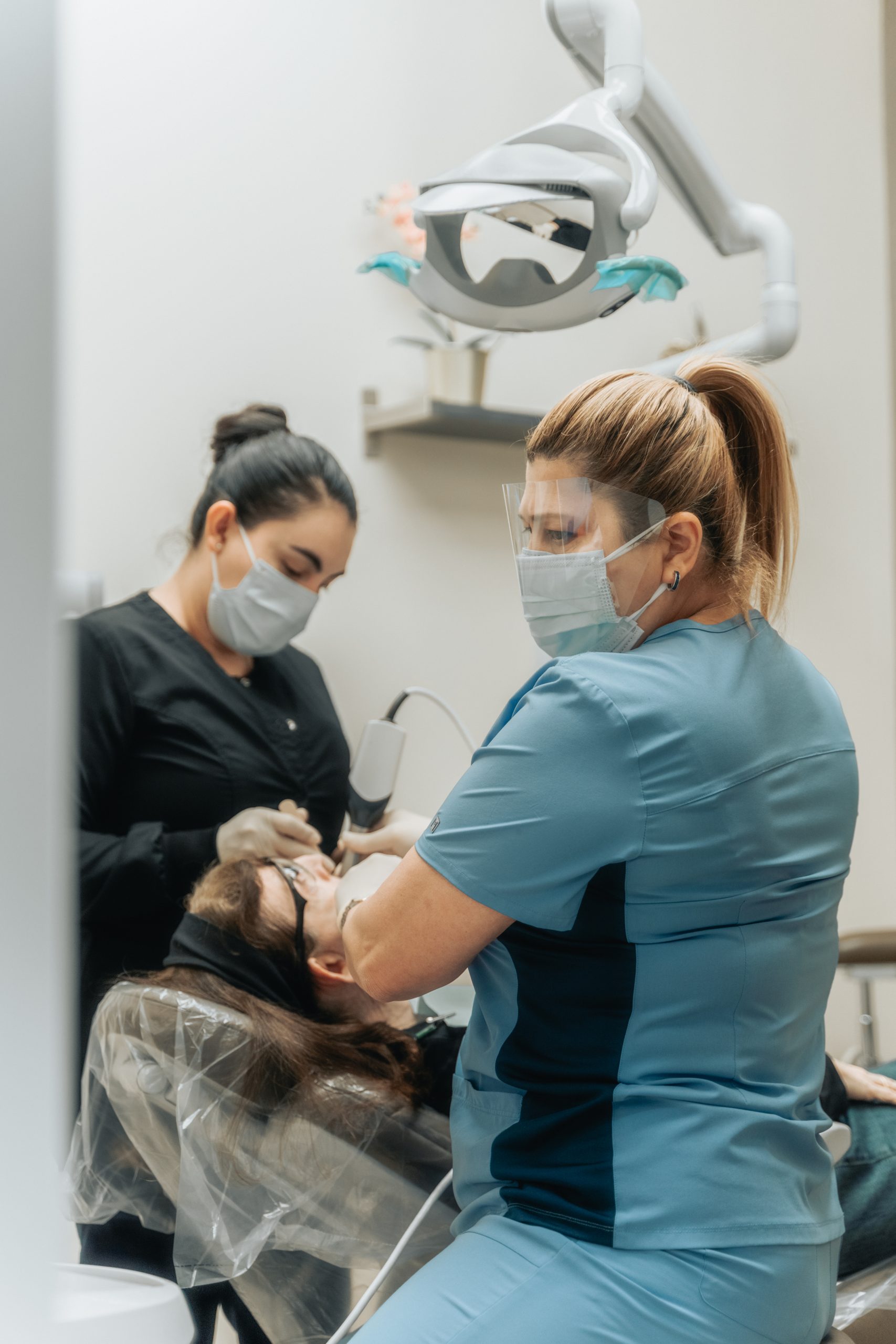Understanding Exactly How Dental Professionals Deal With Typical Oral Health And Wellness Issues
Dental experts utilize a complex technique to take care of common dental wellness concerns, making use of diagnostic methods such as aesthetic assessments and X-rays to detect cavities, gum tissue illness, and tooth level of sensitivity. Therapy approaches range from professional cleansings to restorative treatments, all customized to private needs. Emphasizing preventive care, dental professionals likewise supply personalized recommendations on preserving oral health. This alternative approach not just addresses prompt worries but additionally intends to reduce long-lasting issues. How exactly do these approaches merge to make sure optimal dental health and wellness? The next steps in recognizing these methods are both detailed and essential.
Detecting Tooth Cavities
Identifying tooth cavities involves a careful examination of the teeth, utilizing both visual evaluations and progressed analysis devices. Oral specialists begin with a thorough aesthetic analysis, looking for staining, visible openings, or various other signs of decay on tooth surface areas. They might utilize an oral mirror and explorer to identify soft areas or areas that might suggest demineralization.
In enhancement to aesthetic assessments, dental professionals commonly employ sophisticated analysis tools to improve precision. Digital radiographs, or X-rays, are essential in identifying cavities that are not noticeable to the naked eye, such as those in between teeth or under existing oral job. These photos provide comprehensive insights right into the level and place of decay, enabling specific treatment preparation.
Some professionals also make use of laser fluorescence devices, which identify adjustments in tooth make-up by determining just how much light is mirrored back from the tooth surface. This approach can recognize early-stage cavities that could not yet be visible or noticeable with traditional ways. Regular dental examinations and the use of these diagnostic strategies are important in capturing cavities early, consequently protecting against more decay and protecting overall oral health and wellness.
Dealing With Periodontal Illness
While detecting tooth cavities is an important aspect of oral health and wellness, it is just as vital to address gum tissue illness, an additional widespread dental issue. Periodontal illness, or gum condition, is mainly brought on by the build-up of plaque, a sticky film of germs on the teeth and periodontals. If without treatment, it can proceed from gingivitis, a moderate kind, to periodontitis, a more severe problem that can lead to missing teeth and systemic health concerns.
The preliminary treatment for gum tissue disease usually includes non-surgical methods. Scaling and root planing, a deep cleaning treatment, is typically used to get rid of plaque and tartar from underneath the gumline. Anti-bacterial medicines may likewise be suggested to minimize microbial load.
For sophisticated situations, medical interventions could be necessary. Procedures such as flap surgical procedure, where periodontals are lifted back to get rid of tartar deposits, or bone and tissue grafts, which aim to regenerate damaged locations, are utilized to bring back oral health.
Ongoing upkeep is critical in managing gum illness. Dental professionals recommend regular dental check-ups, specialist cleansings, and persistent home treatment techniques, including brushing, flossing, and using antibacterial mouth wash. Early discovery and constant monitoring are crucial to preventing the progression of this usual yet major oral problem.
Handling Halitosis
Foul-smelling breath, also known as halitosis, regularly affects individuals and can be a resource of significant social pain and anxiousness. Dental professionals play a critical function in handling this problem try this out and diagnosing by identifying underlying causes and suggesting proper treatments.
The etiology of halitosis is multifactorial, with inadequate oral hygiene being a primary factor. Bacterial plaque accumulation on the teeth and tongue, food particles, and dry mouth prevail offenders. dentist eugene oregon. Dental professionals frequently start management by advising people on efficient dental health methods, consisting of normal cleaning, flossing, and using antibacterial mouthwashes

In addition, way of living and nutritional elements, such as tobacco use and intake of certain foods, may exacerbate foul-smelling breath. Dental experts provide tailored recommendations on dietary adjustments and cessation read this article of damaging behaviors. Partnership with other medical care suppliers may likewise be warranted if systemic problems, such as respiratory infections or stomach problems, are suspected factors to halitosis.
Addressing Tooth Sensitivity
Resolving dental health prolongs beyond managing foul-smelling breath to consist of problems like tooth sensitivity, which can dramatically affect every day life. Tooth level of sensitivity, defined by pain or pain in feedback to stimuli such as warm, chilly, sweet, or acidic foods and beverages, typically results from exposed dentin or receding gums. Dentists use a complex method to minimize this condition and take care of.
First, a detailed exam is vital to recognize the underlying cause, which might vary from enamel erosion to gingival economic downturn. Based on the medical diagnosis, therapy can entail desensitizing representatives like fluoride gels or varnishes, which reinforce tooth enamel and decrease sensitivity. In addition, dentists may suggest particularly formulated toothpaste for sensitive teeth, containing compounds like potassium nitrate or stannous fluoride to block pain signals.

Preventive Dental Treatment
Identifying the relevance of preventive oral care is critical for preserving long-term dental wellness. Preventative care encompasses a variety of methods intended at protecting against the start of dental diseases and conditions.
Additionally, precautionary treatment consists of the application of fluoride treatments and dental sealers, which provide an added layer of security versus tooth decay. Fluoride strengthens the enamel, making it extra resistant to acid strikes, while sealers work as an obstacle on the chewing surface areas of the back teeth, where decay typically begins.
Education and learning is a considerable part of preventive oral see page treatment. Hygienists and dental experts inform individuals on appropriate brushing and flossing methods, the significance of a balanced diet regimen, and the effect of way of living choices such as smoking and sugar intake on oral health and wellness.
Conclusion

Dentists use a complex technique to handle usual oral health concerns, using analysis methods such as visual evaluations and X-rays to spot dental caries, gum illness, and tooth sensitivity.While identifying tooth cavities is a vital facet of dental health and wellness, it is equally crucial to resolve gum illness, one more widespread oral concern. dentist in eugene oregon. Dentists may perform a detailed oral evaluation to identify prospective issues such as periodontal illness, dental cavities, or oral infections. By attending to tooth level of sensitivity thoroughly, dental experts assist individuals attain better comfort and preserve optimum dental health
Highlighting precautionary treatment and customized advice, dental professionals play an important duty in maintaining optimal dental wellness and alleviating lifestyle-related dental troubles.